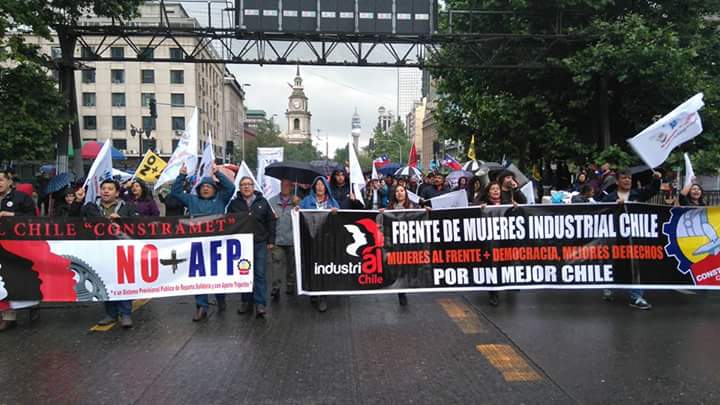Read this article in:
English
21 October, 2016On 16 October, 75,000 people took to the streets in Chile to manifest against the country’s pension system run by private companies, known as AFP. It is the third time since August that thousands of Chileans protest against the low pensions paid out, compared to the high corporate profits.
The AFP system was introduced 35 years ago by dictator Augusto Pinochet. Since then, workers pay 10 per cent of their wage into a pension fund. Although the AFPs initially promised to pay a pension equivalent to 70 per cent of the final salary, they are currently paying less than the minimum wage (approx. US$400). The result is that people have to carry on working after reaching retirement age.
The system is specifically disadvantageous to women as they have longer life expectancy, lower wages, and retire at 60, five years earlier than the men.
Protestors want a tripartite, solidarity-based, sharing system that provides workers with decent pensions.
The social movement “No More AFPs”, which organized the demonstration, submitted its proposal to President Michelle Bachelet in September. It wants to turn the proposal into a parliamentary bill. It says that a sharing system is the most efficient for providing better pensions, and channelling current contributions into a sharing fund can create that such a system. Finally, it proposed creating an autonomous institution, similar to the Central Bank, to administer the collective fund.
A national strike has been scheduled for 4 November to call on the government to accept this idea and end the contracts with the AFPs.
Marino Vani, IndustriALL assistant regional secretary for Latin America and the Caribbean said:
We are in solidarity with Chilean workers and we congratulate them on their struggle, their resistance and their proposals. We cannot accept that workers who produce the wealth and grow the capital of our countries live out their days in precarious and inhuman conditions while the government provides private companies with fiscal incentives, tax exemptions, high profit margins and investment guarantees.


